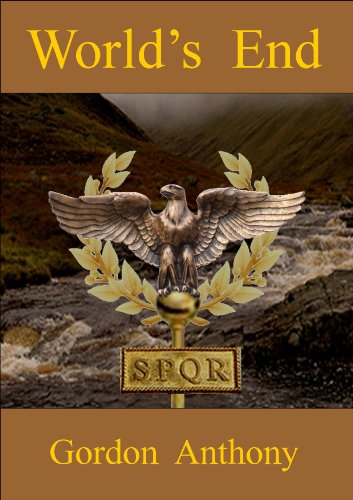World’s End
This story starts in 43 AD in the earliest period of the Roman occupation of what will later become England. The hero is Calgacus, a younger half-brother of Caractacus, a war leader of the Celtic natives, the “Pritani”, who is resisting the Romans in the southern part of the country. Calgacus is a warrior and keen to play his part in fighting the invaders but the natives are generally no match for the Roman war machine. We follow Calgacus and his comrade, Runt, as they try to muster support amongst the native tribes, not all of whom are enthusiastic to join the struggle. Calgacus learns that he must use cunning to have any success against the Romans and he also needs his wits to overcome rivals amongst the Pritani and a villainous druid.
I enjoyed this story, it was fast-paced, exciting and well written and gives an insight into both a native warrior’s life and how the tribes were seen by the Romans. Some of the characters such as Caractacus, Queen Cartimandua of the Brigantes and the leading Romans are based on real people, but there are lots of gaps in the history of this time where a character like Calgacus might be found. Most novels set in this period have Roman lead characters so it’s interesting to have a story that is mostly told from the Britons’ side. I particularly liked the way in which Calgacus is shown how the druids have gained their influence through exploiting superstitious belief (although at one point his mentor in rationalism does seem to have a rather advanced understanding of human anatomy for the time!)
This novel would appeal to fans of Simon Scarrow’s Roman novels and anyone interested in what Britain was like at the time of the Roman occupation. I think there is real potential for a popular historical series here and look forward to reading of Calcagus’s further adventures.
The book is professionally presented with an attractive cover (although the Roman standard on the cover might suggest that it is more about the Romans than the Britons). The list of place names with their modern equivalents is helpful but a list of characters might also be useful.










